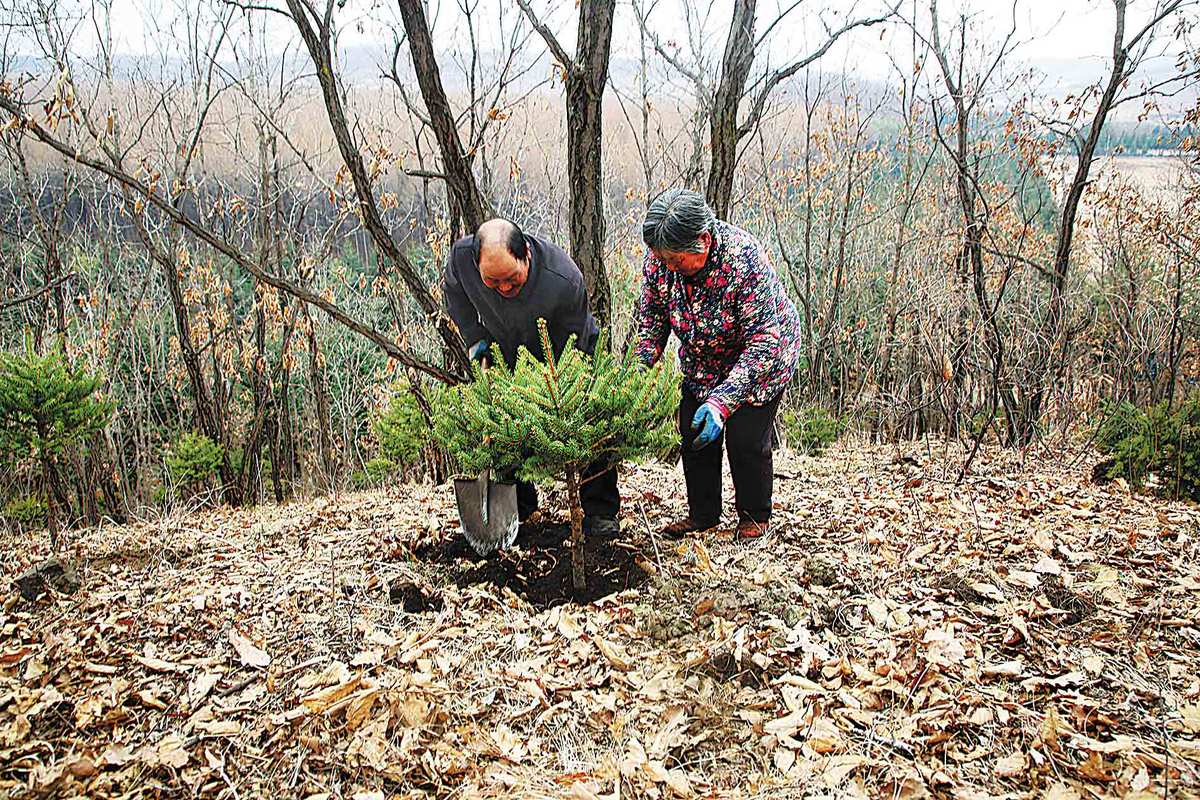Man's dream greens barren mountains


It is difficult to imagine that when Li Zhenhai and his wife Jiang Kaizhi came to live in Morin Dawa Daur Autonomous Banner in the Inner Mongolia autonomous region nearly four decades ago, there was no electricity, tap water or fresh vegetables.
Even more difficult to imagine is that under the harsh living conditions they planted over 600,000 trees covering over 150 hectares in the barren mountains around Hulunbuir.
Born in 1944 and originally from Shandong province, Li came to the banner to visit relatives in the autumn of 1973. During the visit, he collected mushrooms and hazelnuts, and earned in a week what he would earn in his hometown in a year. He decided to settle in the banner because of the abundant resources there.
Hardworking Li and his wife reclaimed more than 3 hectares of land and they lived a quiet and comfortable life.
But a sudden torrential rainstorm in 1980 washed their land away. With his farming experience, he knew that within two years the land would be so damaged that it could not be cultivated.
Summoning his resolve, he decided to plant trees to make a living and protect the local ecology and environment.
Although his family opposed the idea, Li was undaunted and resolute, simply going into the mountains without their consent.
His son brought him home on a tractor, but the next day Li went up the hill again. Seeing that her husband was so committed, his wife decided to go into the mountains with him to follow his dream.
Life in the mountains was very hard. There was no electricity and mosquitoes were everywhere.
There were no established plots for vegetables at first, so they had to forage for food.
At night, there were also snakes and insects to contend with.
A snake once slithered onto the quilt while they were sleeping. Out of love for his wife, Li urged her to return to the family, while he remained and attended to the saplings.
After walking down the mountain alone for some distance, she had a change of heart and decided that despite the conditions the mountain would be her home and she would help Li in his quest to green the terrain.
Due to a lack of planting experience, the initial survival rate of their saplings within seven years of planting was less than 10 percent.
Li realized the need for a high-tech and scientific planting method, so he began to subscribe to forestry magazines. The local government also supported him financially and technically, helping him install electricity and a mechanically powered well.
High-quality seedlings were brought in and he changed the local soil to improve the seedlings' chances to adapt to local conditions. After these and other technical improvements, the survival rate of his pine trees reached more than 95 percent.
The years ahead offered little time for leisure for the couple. Planting trees in the spring was the hardest. Every morning, the couple had to transport the saplings a kilometer up into the mountain, where they worked for more than 10 hours every day.
At the age of 78, Li still patrols the forest every morning, gazing at its size as it stretches over the mountain, giving him a sense of achievement and joy.
The couple has donated more than 4 million yuan worth of green saplings to the banner over the years.
Li has also written about his many years of experience of planting trees in a manual to share with the villagers, in a bid to encourage others to get into afforestation.
Now Li's biggest wish is that everyone plant a few trees every year. He firmly believes that if one person planted a tree, the desert would become an oasis of green.
Ye Zizhen contributed to this story.





































